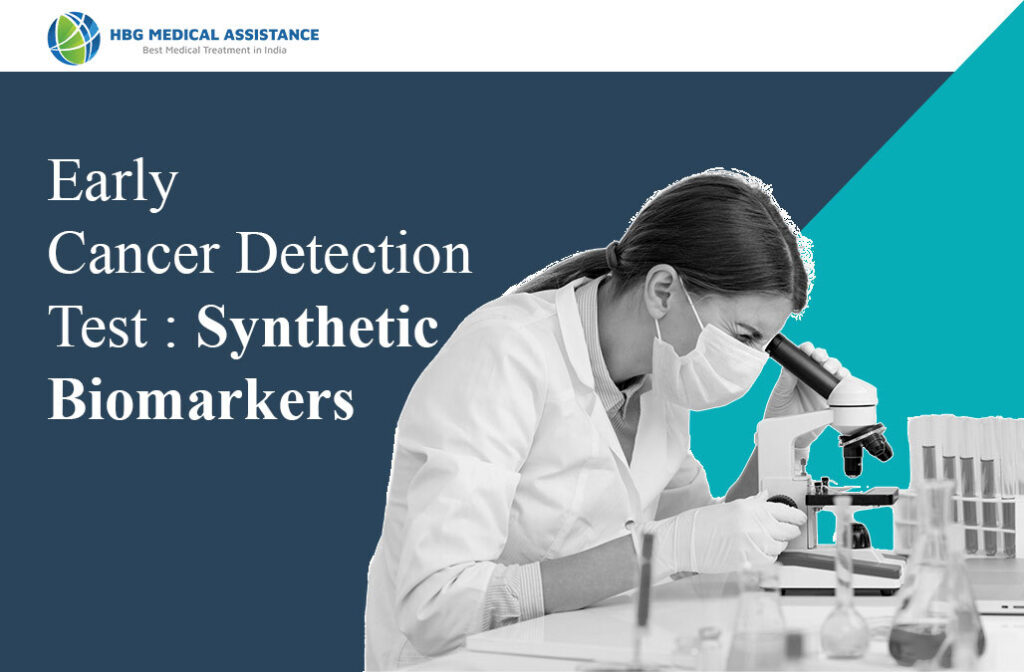Synthetic Biomarkers are an Emerging technology for the development of early cancer detection. This technology includes the administration of exogenous drugs to assess biological function in vivo and has a long clinical history.

Synthetic biomarkers are sensors and small-molecule probes activated by certain enzymes in the tumour or its microenvironment to amplify the tumour’s molecular mechanisms. Thus, they indicate very advanced stages of tumour activity in the body. This is achieved by reducing the required limit of detection to unprecedented levels, facilitating early diagnosis and intervention for improved patient outcomes.
This helps doctors identify diseases such as cancers at a very early stage and treat them accordingly.
Synthetic biomarkers of protease activation include peptide substrates bound to the surface of a carrier substance that releases a reporter chemical agent for detection in blood or urine after being attached to a tumour protease. This results in molecular signal amplification, which is then detected by the scanners and other tests. The most commonly detected cancers using this process are Liver Cancers, Prostate cancers and Breast Cancers.
As the diagnostic technology, which is currently mostly in the developmental phase, moves towards actual human testing, the components that are used for synthetic biomarkers are under clinical testing for larger safety records for a larger range of tests. This is currently limited to select cancers only.
Comparison with traditional diagnostic methods reveals several advantages of synthetic biomarkers:
Synthetic biomarkers find applications across various types of cancers, including but not limited to:




Cancer Treatment in India, VSD Closure (Ventricular Septal Defect), ASD Closure Surgery (Atrial Septal Defect), Heart hole closure surgery in india, Brain Tumour Surgery in India, Craniotomy Surgery for Treatment of Brain Tumour in India, Brain Stem Glioma Treatment in India, Deep Brain Stimulation surgery in india , Best Spine Surgery In India , Cervical Spine Disorders Surgery and Treatment in india , epilepsy surgery in india , Heart Surgery in india , Best open heart surgery hospital in India , All about Spine Surgery, Types of Back Surgery , Top Doctors In India , Best Hospitals in India , Bhavin Desai cardiac surgeon, Best kidney transplant doctor in IndiaBest hospital for limb lengthening surgery in India, Best hospital for neurosurgery in India, Best hospital for bypass surgery in India, Narayana Hrudayalaya online appointment, Best orthopedic hospital in Bangalore, Best open heart surgery hospital in India, Best bypass surgeon in India, best spine surgery hospital in India, Artemis hospital Gurgaon, KD hospital medical appointment
Limb lengthening surgery cost in India, DSA test, Diabetes treatment in India